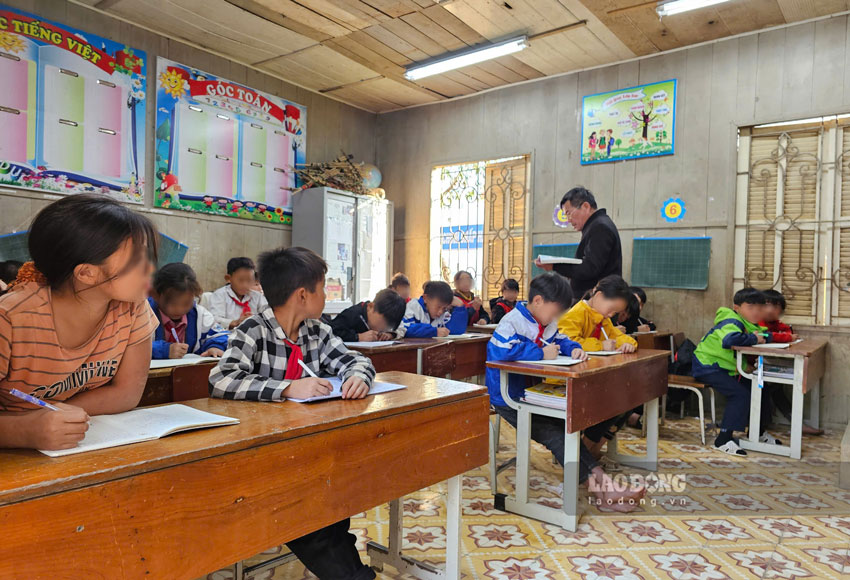From 2026, when the Law on Teachers officially takes effect, the teaching staff will receive the highest salary in the administrative sector. Along with that, the Ministry of Education and Training proposed to apply a special salary coefficient for all teachers and increase the special allowance for teachers.
In addition to salary, teachers are also entitled to work responsibility allowances, mobile allowances, heavy, toxic and dangerous allowances, depending on the nature and teaching conditions of each position.
This information is receiving a lot of attention and expectations in the education sector. For teachers who are sowing words day and night in remote areas, this policy not only has material significance, but is also a great source of spiritual encouragement for them to continue to persevere in the profession.
After more than 19 years of being attached to the podium, Ms. Duong Thi Bich Ngoc - Music teacher, General Director of the Chieng Luong Primary School Team (Phieng Pan commune, Son La province) still clearly remembers the difficult early days. After graduating from college and university, she chose to return to her hometown to contribute, even though she had to teach in a particularly difficult area.
She recalled her time working at Muong Chum Secondary School (Muong La, Son La), she had traveled 4 trips back nearly a hundred kilometers to visit her young children. During the rainy and flood days, the roads and mountains were eroded, so she had to walk through the stream and wade through mud to get to school. "There were times when my child was sick, I could only cry because I couldn't go home right away. But thinking about the students waiting, I told myself to try harder" - she said.
In 2021, Ms. Ngoc moved to the current school - Chieng Luong Primary School (Son La), in Phieng Pan commune - a border area with particularly difficult economic conditions. Here, she and her colleagues not only teach literacy and singing but also take care of every meal and sleep for students. "We are both teachers, sisters, and mothers. Many days when the children are sick, I stay to take care of them, cut their hair, and shampoo them. I just hope they feel loved and not alone on their path of learning" - she shared.
Ms. Ngoc said that her current income is about 19 million VND, although it is higher than before, it is still not enough for daily life. " Prices are increasing every day, so current income is still very limited. I just hope the salary increase policy will be implemented soon, so that teachers in mountainous areas will have less worries about food and clothing and feel secure in their profession" - she expressed.

Not only Ms. Ngoc, Ms. Bui Thi Lieu - teacher at Thang Mo Primary Boarding School for Ethnic Minorities (Thang Mo commune, Tuyen Quang province) - also shared her joy and expectations when hearing about the salary increase policy.
"I am currently teaching in a commune in region III, located in a border area, where 100% of students are ethnic minorities. Because most of the students are not fluent in general English, teaching and imparting knowledge to them is difficult, requiring teachers to be more patient and creative in each lesson. Therefore, every time we receive the attention of the State, we feel more motivated and have more confidence to continue to stick with the profession" - Ms. Lieu said.
According to Ms. Lieu, the salary increase policy not only helps improve the lives but also shows the State's concern and recognition for those who are silently contributing day and night. "I hope the policy will be implemented soon so that teachers in disadvantaged areas can feel secure in their profession and continue to bring knowledge to students in mountainous areas" - Ms. Lie expressed.











